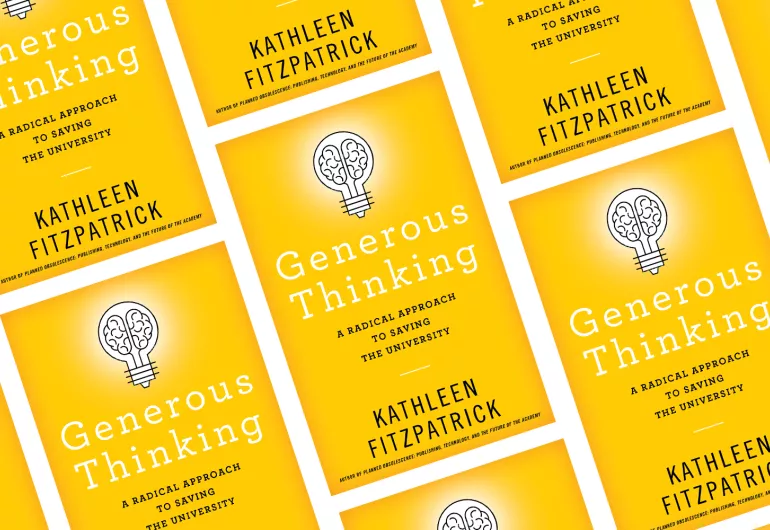Institute of Advanced Study Presents
Generous Thinking: A Radical Approach to Saving the University
Featuring Kathleen Fitzpatrick
Past event
Feb 18, 2021
Captioning

Featuring Kathleen Fitzpatrick
Director of Digital Humanities
Professor of English
Michigan State University
Higher education occupies a difficult place in twenty-first-century American culture. Universities―the institutions that bear so much responsibility for the future health of our nation―are at odds with the very publics they are intended to serve. It is imperative that we re-center the mission of the university to rebuild that lost trust. Critical thinking―the heart of what academics do―can today often negate, refuse, and reject new ideas. In an age characterized by rampant anti-intellectualism, Generous Thinking charges the academy with thinking constructively rather than competitively, building new ideas rather than tearing old ones down. We need to rethink how we teach the humanities and to refocus our attention on the very human ends―the desire for community and connection―that the humanities can best serve.
Kathleen Fitzpatrick is Director of Digital Humanities and Professor of English at Michigan State University, where she also directs MESH, a research and development unit focused on the future of scholarly communication. She is project director of Humanities Commons, an open-access, open-source network serving more than 25,000 scholars and practitioners across the humanities and around the world, and she is author of Generous Thinking: A Radical Approach to Saving the University (Johns Hopkins University Press, 2019), Planned Obsolescence: Publishing, Technology, and the Future of the Academy (NYU Press, 2011), and The Anxiety of Obsolescence: The American Novel in the Age of Television (Vanderbilt University Press, 2006). She is president of the Association for Computers and the Humanities, and she is a member of the boards of directors of the Council on Library and Information Resources and of the Educopia Institute.